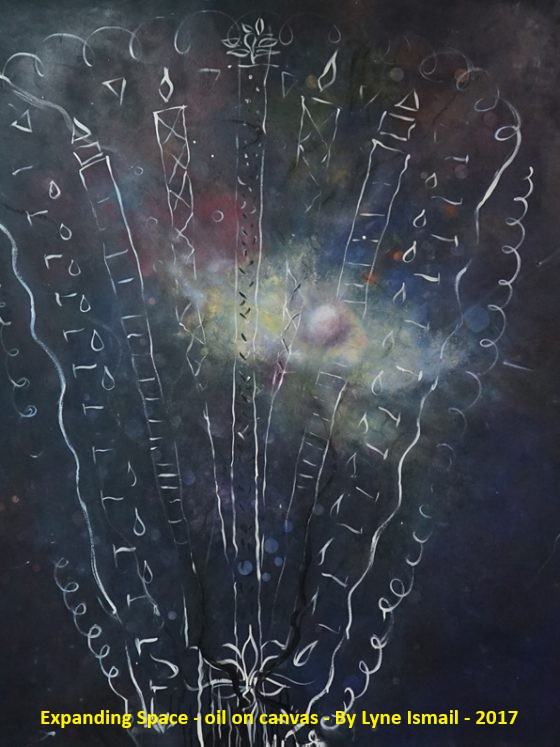Japan in the United States' Reverse Course An Inter-imperial Analysis of Kazuo Ishiguro’s An Artist of the Floating World
Main Article Content
Abstract
This article examines how Kazuo Ishiguro’s An Artist of the Floating World (1986) represents the ambivalence of Ono, its Japanese narrator in postwar Japan, as he confronts his past role in creating propagandistic posters for the Japanese Empire’s militarism during the United States Reverse Course. After World War II, the US occupation of Japan (1945–1952), which marked the US Empire’s dismantling of the Japanese Empire, initially sought to demilitarise Japan. However, to counter communism, around 1947 or 1948, the US introduced the Reverse Course in Japan, which contradictorily relaxed its demilitarisation efforts and permitted remilitarisation. The Reverse Course’s contradictory messages about militarisation, this article argues, serve as the backdrop for Artist’s depiction of Ono’s ambivalence about his past involvement in Japanese militarism. Mobilising Laura Doyle’s inter-imperiality, the textual analysis demonstrates that, under the US Empire’s Reverse Course, Ono is ambivalent about admitting his past advocacy of the Japanese Empire’s militarism was wrong, despite acknowledging the ideology’s severe consequences in postwar Japan. It shows how the US Reverse Course perpetuated remnants of Japanese militarism after the war The findings fill the research gap of current scholarship on Artist, which is rarely grounded in Japan’s postwar history intertwined with the US.
Downloads
Article Details

This work is licensed under a Creative Commons Attribution 4.0 International License.
Copyrights of all materials published in SARE are retained by the authors. Authors may republish their work or grant others permission to republish it. We would be grateful if republication is accompanied by an acknowledgment that the work was originally published in SARE.
References
Boehmer, Elleke. Postcolonial Poetics: 21st-Century Critical Readings. Palgrave Macmillan, 2018.
Boym, Svetlana. The Future of Nostalgia. Basic Books, 2001.
Chen, Ken. 2015. “Kazuo Ishiguro: My Own Private Japan. ” Asian American Writers’ Workshop, 7 April 2015, aaww.org/kazuo-ishiguro-my-own-private-japan/.
Cheng, Chu-chueh. “Cosmopolitan Alterity: America as the Mutual Alien of Britain and Japan In Kazuo Ishiguro’s Novels.” Journal of Commonwealth Literature,
vol. 45, no. 2, 2010, pp. 227–244, https://doi.org/10.1177/0021989410366892.
Ching, Leo T. S. Becoming “Japanese”: Colonial Taiwan and the Politics of Identity Formation. U of California P, 2001.
Davis, Christopher. Reading, Writing and Understanding the Postcolonial. 2016. U of Warwick, PhD dissertation. Warwick Research Archive Portal.
wrap.warwick.ac.uk/id/eprint/80930/.
Desai, Vishaka. “Introduction: Censorship and Art: Japan and America.” Undercurrents in the Floating World: Censorship and Japanese Prints, edited by Sarah
Thompson and Harry Harootunian. The Asia Society Galleries, 1991. pp. 1–6.
Doyle, Laura. Inter-imperiality: Vying Empires, Gendered Labor, and the Literary Arts of Alliance. Duke UP, 2020.
Gabrakova, Dennitza. The Unnamable Archipelago: Wounds of the Postcolonial in Postwar Japanese Literature and Thought. Brill, 2018.
Gilroy, Paul. Postcolonial Melancholia. New York: Columbia UP, 2005.
Gordon, Andrew. A Modern History of Japan: From Tokugawa Times to the Present. Oxford UP, 2003.
Ikeda, Asato. The Politics of Painting: Fascism and Japanese Art During the Second World War. U of Hawai‘i P, 2018.
Ishiguro, Kazuo. An Artist of the Floating World. 1986. Faber & Faber, 2001.
—. “Kazuo Ishiguro: Thatcher’s London and the Role of the Artist in a Time of Political Change. ” The Guardian, 24 June 2016, theguardian.com/books/2016/jun/24/kazuo-ishiguro-my-turning-point-reading-proust-on-my-sickbed.
Kim-Kiteishvili, Jungah. “Specters of Comfort Women: Biopolitical Colonial Warfare, Questions of Humanity, and the Haunted Future.” Violence: An International
Journal, vol. 4, no. 1–2, 2023, pp. 48–70, https://doi.org/10.1177/26330024231213102.
Mason, Gregory. “An interview with Kazuo Ishiguro.” Contemporary Literature, vol. 30, no. 3, 1989, pp. 335–347, https://doi.org/10.2307/1208408.
Miller, Jennifer. Cold War Democracy: The United States and Japan. Harvard UP, 2019.
Mitter, Rana. “An Asian Nostalgia.” International Journal of Asian Studies, vol. 18, no. 1, 2021, pp. 83–96, https://doi.org/10.1017/S1479591420000650.
Morikawa, Takemitsu. “When Market Promotes Individuality: Arts in Early Modern Japan From the Macrosociological Perspective.” The Sociology of Arts and Markets: New Developments and Persistent Patterns, edited by Andrea Glauser et al., Palgrave Macmillan, 2020, pp. 159–181.
Morris-Suzuki, Tessa. “Post-War Warriors: Japanese Combatants in the Korean War.” The Asia-Pacific Journal vol. 10, no. 31, 2012, pp. 1–19,
apjjf.org/2012/10/31/tessa-morris-suzuki/3803/article.
Sakai, Naoki. The End of Pax Americana: The Loss of Empire and Hikikomori Nationalism. Duke UP, 2022.
Shibusawa, Naoko. America’s Geisha Ally: Reimagining the Japanese Enemy. Harvard UP, 2006.
Sim, Wai-chew. Kazuo Ishiguro. Routledge, 2010.
Sloane, Peter. Kazuo Ishiguro’s Gestural Poetics. Bloomsbury Academic, 2021.
Song, Zhiyong 宋志勇. “Zhanhou chuqi Zhongguo de duirizhengce yu zhanfan shenpan” 战后初期中国的对日政策与战犯审判 [China’s policy towards Japan and
the trial of Japanese war criminals in years immediately after World War II]. Nankai xuebao 南开学报, no. 4, 2001, pp. 40–48. CNKI,
oversea.cnki.net/KCMS/detail/detail.aspxdbcode=CJFD&dbname=CJFD2001&filename=LKXB200104006&uniplatform=OVERSEA&v=CVNaGpgrb_75ag5G
Z_AIRPDn0TZMy5pRVNeYkGW8nCGZPX9yBuPXiijMoLFYRYmx.
Stockwin, Arthur. The Failure of Political Opposition in Japan: Implications for Democracy and a Vision of the Future. Routledge, 2023.
Tajiri, Yoshiki. “Ishiguro and Japan: History in An Artist of the Floating World.” The Cambridge Companion to Kazuo Ishiguro, edited by Andrew Bennett,
Cambridge UP, 2023. pp. 27–40.
Tan, Jerrine. “Screening Japan: Kazuo Ishiguro’s Early Japan Novels and the Way We Read World Literature.” MFS Modern Fiction Studies, vol. 67, no. 1, 2021, pp.
–122, https://doi.org/10.1353/mfs.2021.0004.
Wang, Ching-chih. Japanese Imperialism in Contemporary English Fiction. Springer Nature, 2019.
Zhang, Xiaoming 张小明. Meiguo yu Dongya guanxi daolun 美国与东亚关系导论 [An introduction to the history of US-East Asian relations]. Peking UP, 2010.
